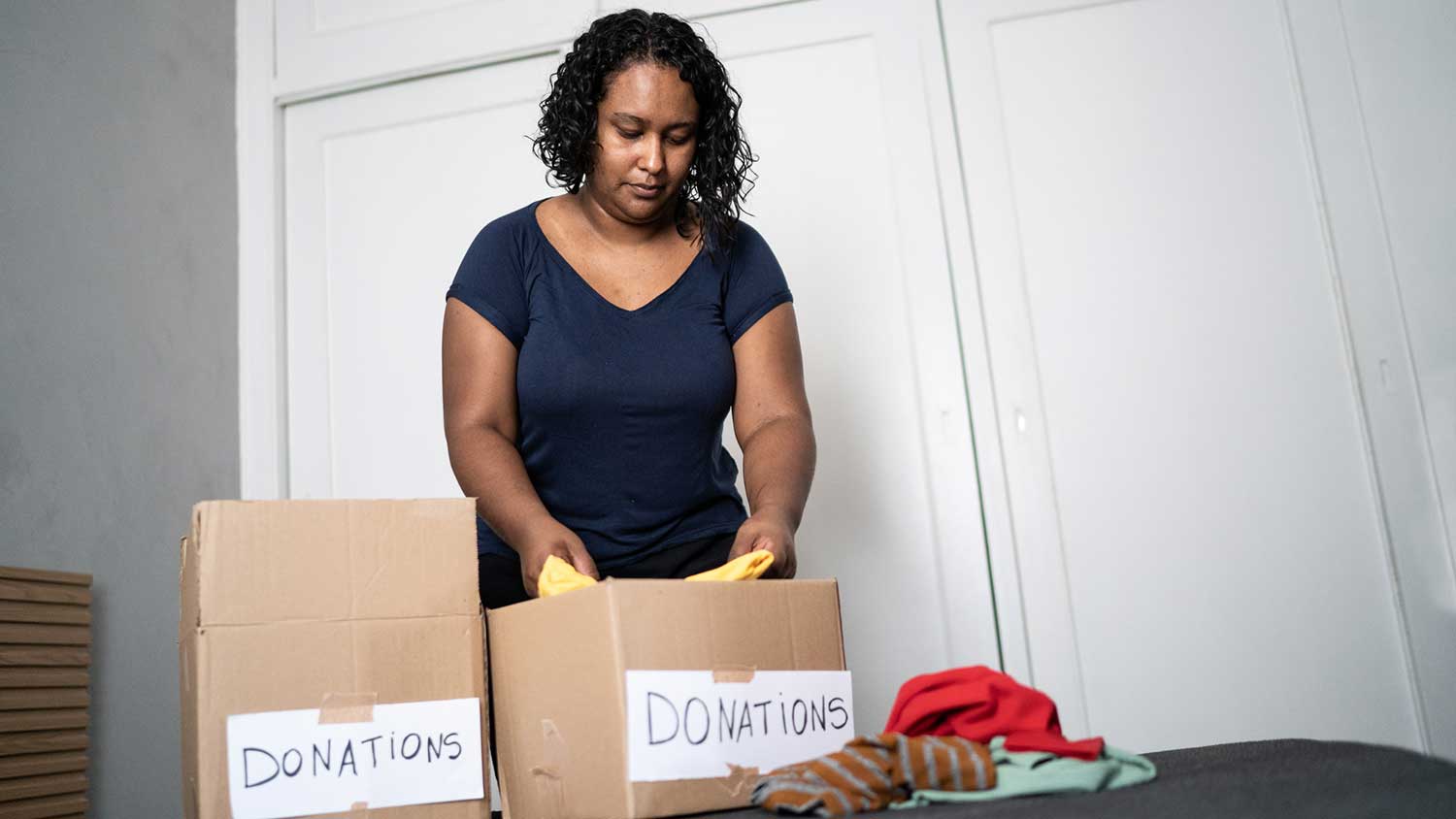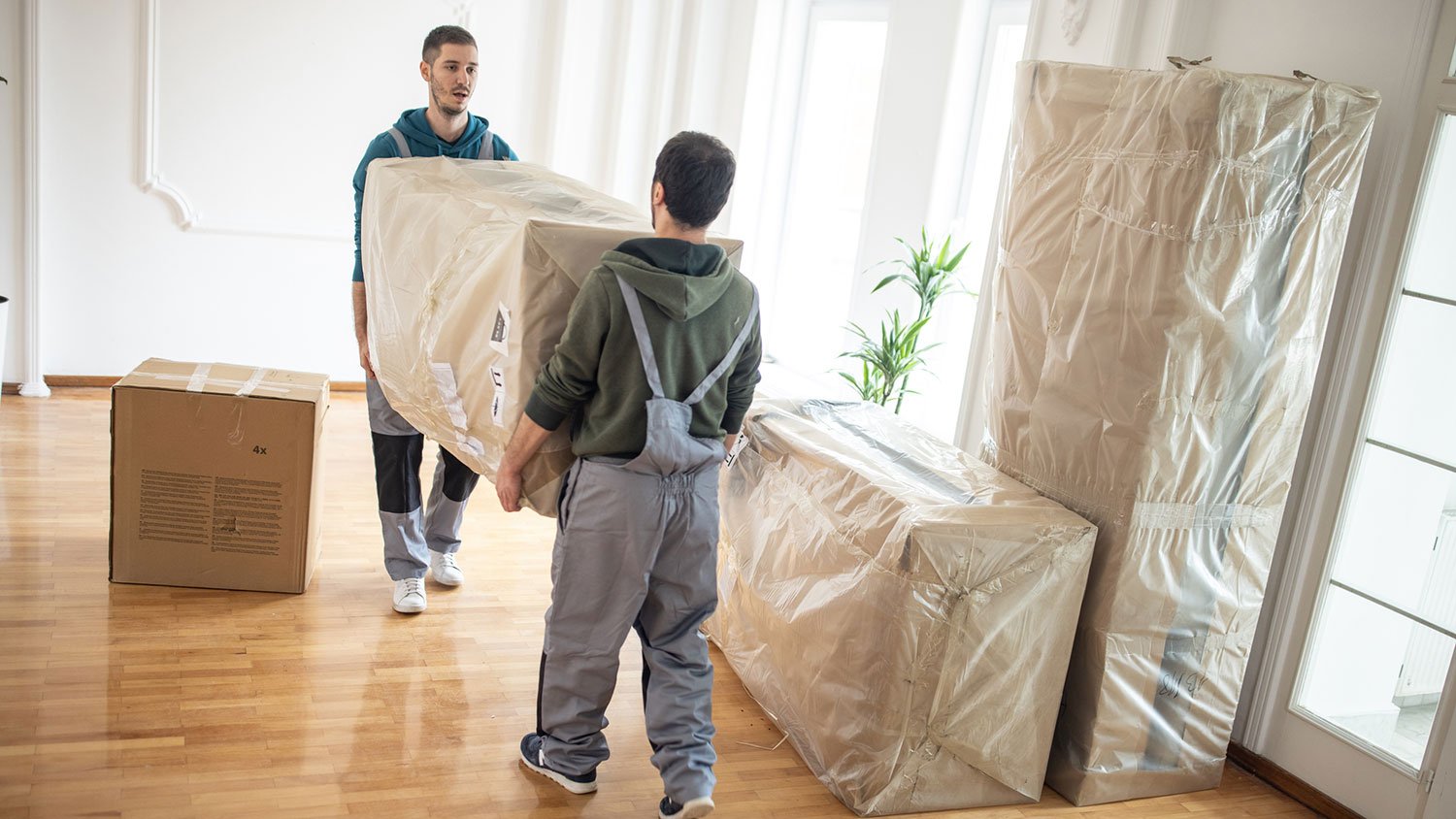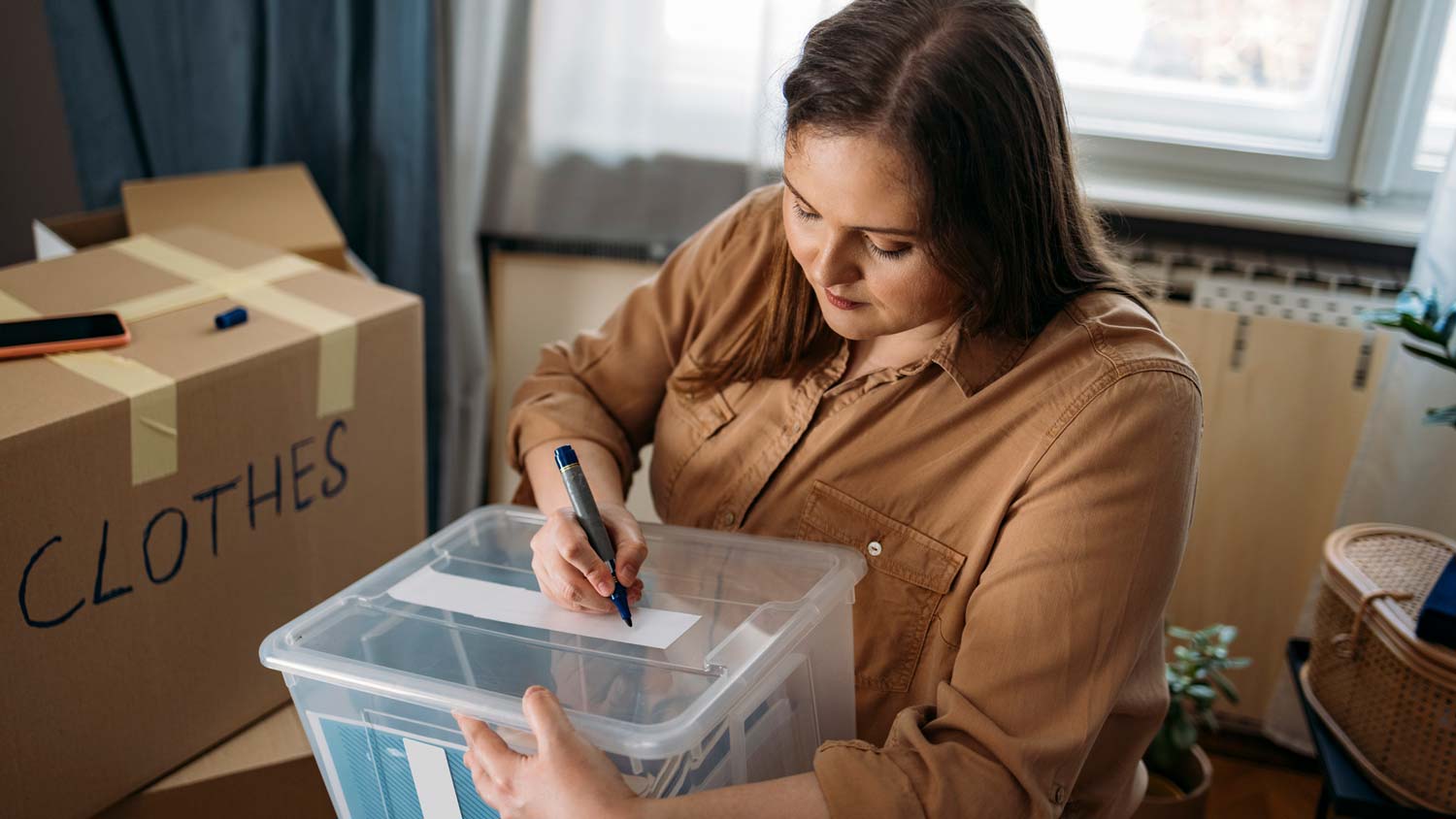20 Moving Tips to Help You Prepare for Moving Day
Pack away your moving day stress with these ideas


Moving to a new place can be both exciting and stressful. Even if you’re super organized, packing might not be your idea of a fun time. These 20 moving tips will help you plan ahead and stay organized, so you can enjoy a stress-free (or at least low stress) move to your new home.
1. Create a Task List and Schedule
“Pack stuff” is certainly number one on your moving to-do list, but it’s not the only task you have to complete when gearing up for a move. Grab a pen and paper or use a note app on your phone and get to jotting down everything you need to do before the big day—from buying packing tape, to scheduling movers, to canceling your newspaper delivery.
Then, open your calendar and schedule when you must finish these tasks. Moving day is your ultimate deadline, but by planning out a timeframe for smaller tasks, you’re breaking down a large, overwhelming project into doable doses. Refer to your schedule and update your list often to prevent important tasks from slipping through the cracks.
2. Declutter Your Home

One of the cardinal sins of moving is taking things that you don’t need or want anymore, which is why it’s crucial to first declutter your home. Start going through your things to determine what’s coming with you and what needs to be discarded, sold, or donated. You might have to make some tough decisions on which things to keep, but it’s better to make them now than waste time packing unnecessary items. Plus, think of all the space you’ll save in the moving truck.
3. Take Care of Small Details
Take care of small details at least two weeks in advance, including:
Obtain a parking permit for the moving truck.
Call your homeowners or renters insurance and inform them of your move.
Inform your car insurance company of your move.
If you use any services, such as a housekeeper, landscaper, or gardener, give them a heads-up about the move.
Notify your voter registration office of your move.
Change your address online for your credit cards, banking, investment, and personal accounts.
4. Pack In Advance

You’ll typically know a few months in advance what season you plan to move. In the meantime, pack away your off-season clothing, shoes, accessories, and items you don’t use daily. Packing non-essential items in advance will make it much easier to pack up your current-use belongings before moving day.
5. Forward Your Mail
This one is easy to forget as you probably take care of things like paying bills and correspondence digitally. But the US Postal Service would much rather you get all the rest of your mail and not the new owners or renters at your former address. It’s easy to change your address online and indicate when you’d like to begin mail delivery at your new address.
6. Press Pause on Deliveries
Now’s also a good time to cancel home deliveries you won’t need before you move. Otherwise, it’s just more things to pack. Be sure that you’ve paused any subscriptions, or let sellers know when you can restart the deliveries at your new place. This is especially important when it comes to prescription delivery services, as you wouldn’t want to have any delays in taking vital medication as you get settled into your new place.
7. Go Light on Groceries

Start limiting how many groceries you buy two weeks before the move. You don’t want to throw away fresh items because you didn’t have the chance to use them. Also, that cake you wanted to bake? Maybe hold off on buying all necessary ingredients until after the move. As a bonus, there will be fewer items in your pantry to pack. And, as you know, less time spent loading and unloading your belongings equals a lower hourly cost to hire movers.
8. Schedule Utilities
With all the ins and outs of moving, one crucial factor is turning on utilities in your new place and shutting off or transferring utilities at your current home. Call the internet and cable providers and the electricity, water, and gas companies at least two weeks before your move. It’s okay to have some overlap—schedule your turn-on service two days before you move in and schedule your shut-off two days after you move out. That way, you have flexibility with moving and can return to your home to repair or clean after the move.
9. Hire the Right Pros

It’s one thing to make the decision to hire a professional moving company or to rent a truck and do you move on your own. But are you hiring the right people and resources for the job? Even if you have the luxury of scheduling your moving day on your own terms, you’re going to want to book a local moving company early so you can get the best quotes. You’ll also want to make sure you’re tapping into the right expertise. For example, one company might have been highly recommended for local moves, but you need one that’s experienced in cross-country moves. The same goes for hiring a rental truck or a packing container—you want to make sure you’re choosing the one with enough space for your needs.
10. Gather Packing Supplies
As soon as you know you are moving, that’s when you should start stockpiling boxes and other packing materials. You might want to reserve some of your moving budget for things like wardrobe boxes to easily pack your clothes and bubble wrap to secure fragile items. If you don't want to buy new moving boxes, start asking family, friends, and neighbors to hold on to boxes and packing paper from their home deliveries.
11. Make a Moving Basket
A moving basket is helpful while packing and unpacking by storing everything neatly in one place. This box or basket is specifically for items you’ll likely need during your move, including moving essentials like scissors, box cutters, packing tape, labels, markers, baggies, a notepad, pens, and a screwdriver.
12. Label Moving Boxes

Label each box with its intended room and contents. You’ll also want to number each box sequentially, starting from one. Numbering your boxes is essential—that way, when the move is complete, you can count to make sure every box came from your old home to your new place. You can even take it one step further and creating an inventory list to keep track of the items in each numbered box.
13. Pre-Move When Possible
If you’re moving nearby and can start moving things in advance, it’s a great idea to take advantage of that. Start bringing over items that are easy to carry, and try to wrangle your friends to help you with heavier items, such as moving a shed. You can also use this time to pre-clean the kitchen and bathrooms so you can relax when you move in.
14. Start Small
Unless you are a professional moving organizer, moving can seem like a chore. That’s why even though we might recommend a strategy for breaking this big project down into smaller pieces, it’s important for you to at least get started. Don’t feel like getting on calls with moving companies? Fine, go pack your linen closet instead. It’s okay if you find some tasks more boring or time-consuming than others. But don’t let procrastination cause your moving day to be chaotic. Even if you start with a task that seems miniscule, you’ll feel some sense of accomplishment that will help motivate you to tackle the rest of your moving to do list.
15. Professionally Pack Precious Items

It’s a good idea to let a moving company near you handle fragile items, such as art, antiques, and fine bottles of wine or alcohol. Movers may charge extra for this service—an additional $200 to $1,000, depending on how many items you have, but it’s worth the cost to transport your valuables safely.
16. Pack Essential Items Separately
The night before your move, pack all medications, important paperwork, laptops, toiletries, a set of clothes, and sentimental items in a separate bag that will stay with you throughout the move. This way, you can rest assured that your necessary documents and items will reach your new home, no matter what happens to the moving van.
17. Consider Furniture Assembly Services
If you’re disassembling and reassembling furniture yourself, make sure to keep all of the tiny pieces (nails, screws, washers, etc) together and packed safely. But, if furniture assembly stresses you out, you can hire a professional furniture assembler for an average cost of $35 to $90 per hour.
18. Take Care of Kids and Pets

There’s a lot going on during moving day, so hiring a sitter for pets and children is best. That way, your sole focus will be on the move. You won’t need to worry about pets or children running in and out of the house, obstructing the path of the movers, or risking injury.
19. Move-Out Cleaning
Whether you rent or own the home you’re moving out of, it’s important to leave it clean for the next occupants. You can hire a move-out cleaning company for around $360 or deep-clean it yourself. Be sure to repair any holes in the wall or floors, and deep-clean every room and storage area of your home.
20. Make (And Stick to) a Moving Budget
Prepare for moving day by creating a realistic moving budget that includes professional moving services, moving truck rental costs, packing materials, and more. You’ll likely incur unexpected expenses, like permit fees or extra moving boxes, along the way, but keeping a budget as a reference point can help you manage spending during this hectic time.





- The Ultimate Moving Out Checklist: 8 Week Countdown
- 45-Point Moving Cross-Country Checklist
- How to Move By Yourself: 10 Top Tips
- How To Prepare for Movers: 17 Essential Tips
- 7 Creative Ways to Save Money When Moving
- How to Move Out of State: A Complete Guide
- 7 Reasons to Hire Professional Movers
- 10 Moving Organization Tips To Make Your Move Easier
- 8 Hidden Moving Costs and How to Handle Them
- 7 Tips for Creating the Ultimate Moving Budget















